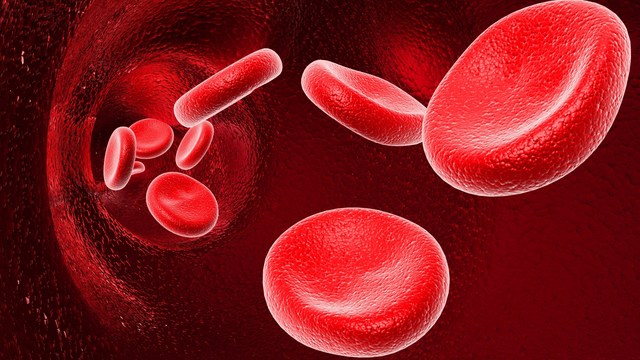 Divakaran Dileep/PhotoSpin
Divakaran Dileep/PhotoSpin
Everybody has a blood type. Sometimes a mother-to-be's blood type is a bad match with her unborn baby's blood type. When this happens a problem arises concerning the Rhesus, or Rh, factor that's called Rh incompatibility.
There are four different blood types. They are type A, type B, type AB and type O. Each of these can be either positive or negative.
If you're Rh positive, your blood has a protein on the surface of their red blood cells, or RBCs. If you are Rh negative, your red blood cells will not have such a protein.
About 85 percent of people are Rh positive. This means about 15 percent are Rh negative. Problems can arise if a woman is Rh negative and her partner is Rh positive. The unborn child has a 50/50 chance of being Rh positive because of the father's blood type.
The first time a woman in this situation is pregnant, the risk for Rh incompatibility is low. Usually the blood of mother and child does not mix during a first pregnancy. During delivery though, there is the chance of the two different types of blood mixing.
If this happens the mother's blood will start to manufacture antibodies to this foreign element. Rh antibodies can travel across the placenta. The baby's red blood cells become targets.
Subsequent pregnancies will have higher risk for Rh incompatibility. If her unborn child is Rh positive, problems from her antibodies will ensue throughout the pregnancy. The baby's red blood cells will be attacked and the blood count can become perilously low.
Insufficient red blood cells will inhibit the baby's oxygen levels. Hemolytic anemia, where blood cells break down at a rate faster than they can be replaced, can occur. In serious cases, this can be fatal.
Fortunately, all of this can be averted. A woman who might experience Rh incompatibility will be given an Rh immune-globulin injection the first time she is pregnant, at her 28th week then again within 72 hours of having delivered her baby. These injections will prevent the antibodies from being formed in the mother's body.
During a pregnancy, if a miscarriage occurs or a blood transfusion is needed, the two blood types can intermingle. Treatment with the Rh immune globulin immediately may remove the danger of a subsequent pregnancy being threatened by Rh incompatibility.
Rhesus factor is checked for through the use of a basic blood test, taken in the health care provider's office then sent to a lab. Another blood test is an antibody screen performed in the first trimester and again in the 28th week to look for antibodies to Rh positive blood.
A woman whose blood is Rh negative should have an Rh immune globulin shot in certain situations:
- Abdominal blunt trauma during pregnancy
- Abortion
- Amniocentesis
- Ectopic pregnancy
- Miscarriage
- Molar (benign tumor) pregnancy
- Rotation from breech position for delivery
- Bleeding in pregnancy
Rh incompatibility used to be a situation that often ended in tragedy. Fortunately, today's mothers and fathers are not faced with that kind of risk anymore.
Rh incompatibility, when identified and treated, can be dealt with effectively. The welcoming of a new family member can be the joy it's meant to be.
Sources:
Rh Incompatibility. Kidshealth.org. Retrieved Sept. 29, 2014.
http://kidshealth.org/parent/pregnancy_center/your_pregnancy/rh.html
What Is Rh Incompatibility? NHLBI.NIH.gov. Retrieved Sept. 29, 2014.
http://www.nhlbi.nih.gov/health/health-topics/topics/rh
Rh factor blood test. Mayoclinic.org. Retrieved Sept. 29, 2014.
http://www.mayoclinic.org/tests-procedures/rh-factor/basics/definition/p...
Visit Jody's website at http://www.ncubator.ca
Reviewed September 30, 2014
by Michele Blacksberg RN





Add a Comment3 Comments
Hi Lakshimi,
If your baby is also Rh positive, there’s no problem, because you both have the same Rh type. If you and the baby have conflicting Rh types, (due to your husband’s genes), that’s fine until your blood mixes with your baby’s blood during birth. That is when fetal blood cells can accidentally combine with your system, and you make antibodies to fight them.
Here is some additional information for you:
RH Explained
Thank you for sharing your question!
~Gillette
March 30, 2015 - 2:55pmThis Comment
Hello.Am rhesus negative but my hubby is Rhesus postive..Rhogam was not given to me after my abortion please how can I secure my subsequent pregnancies??secondly can the injection be given after 3 months of abortion.. I need your help
June 12, 2017 - 8:59amThis Comment
What if a rh positive woman and rh negative man marry
March 28, 2015 - 7:12pmThis Comment